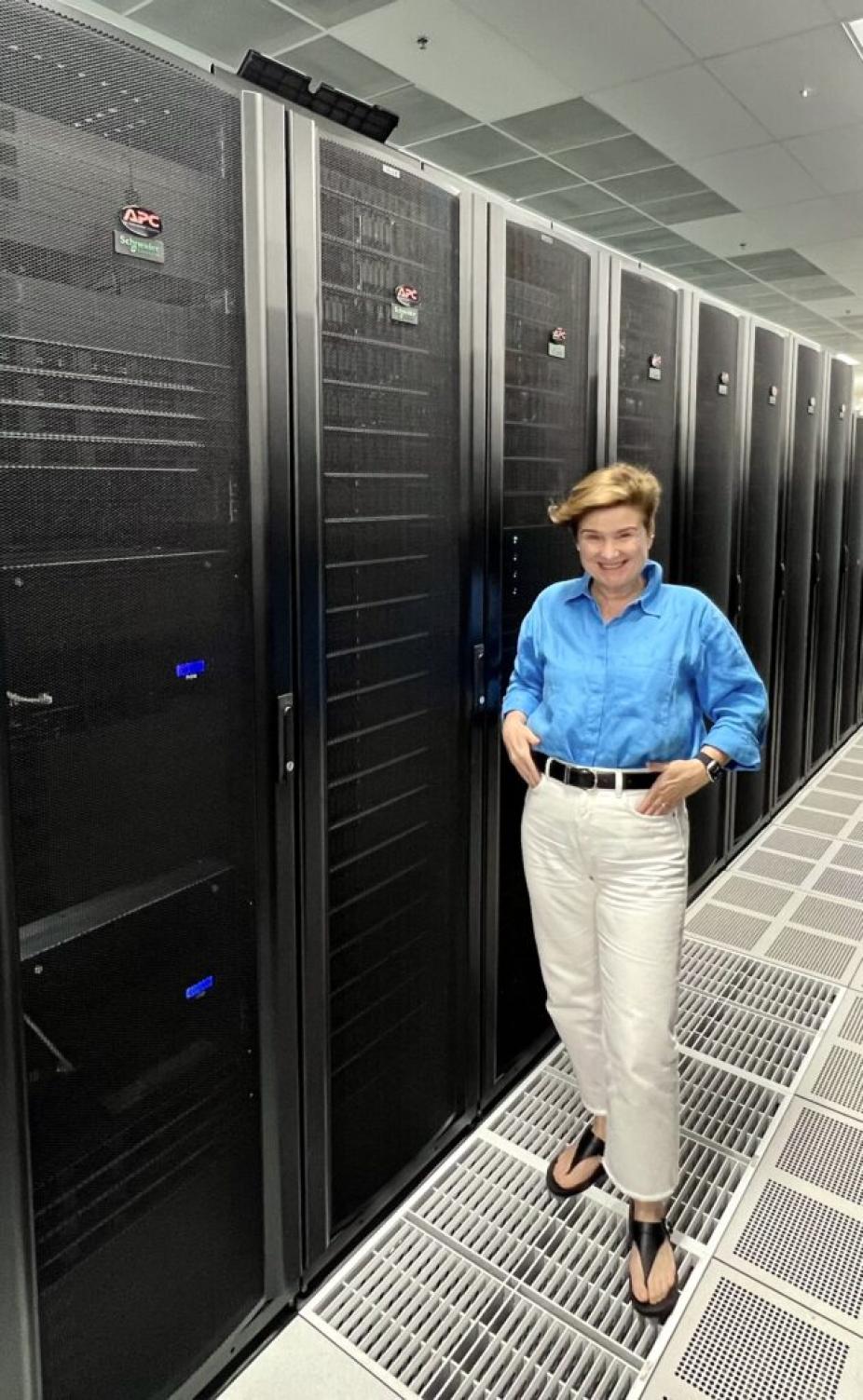NSF NCAR becomes an official partner for the NSF-backed Chameleon testbed
Chameleon, an experimental testbed for computer science research, has been a cornerstone of research and education for nearly a decade. The Chameleon testbed partners with the U.S. National Science Foundation’s National Center for Atmospheric Research (NSF NCAR) and the University of Chicago to expand the frontiers of computer science research. Chameleon, whose infrastructure is located at the University of Chicago and the University of Texas, has served over 10,000 users and contributed to more than 700 research publications.

Senior Scientist Kate Keahey. “Testbeds determine what we can experiment with, and thereby shape what science questions we can attack," she says.
Chameleon, led by Senior Scientist Kate Keahey from the University of Chicago, has now secured an additional $12 million in NSF funding to roll out its next four-year phase to support computer science research on edge, cloud, and artificial intelligence (AI).
“The NSF is pleased to continue funding Chameleon,” said Deep Medhi, Program Director for the National Science Foundation. “This is a great resource for the research community to conduct cutting-edge experimental research.”
A New Phase
A significant highlight of Phase 4 is the formal integration of NSF NCAR as an official Chameleon site and partner. NSF NCAR joined the Chameleon project as a volunteer site in January 2022 with a donation of ARM Thunder X2 nodes. NSF NCAR’s new status now opens up vast opportunities for collaborations in translational computer science.
“Partnership with NSF NCAR allows us to bring together the communities of computer science and atmospheric science researchers to explore a translational approach,” said Keahey.
This partnership is expected to drive advancements in edge computing and edge-to-cloud AI, areas where Chameleon has already made substantial investments and gained significant recognition.
In its fourth phase, Chameleon will acquire new GPUs, including H100s, in response to increasing demand for AI and machine learning (ML) research capabilities. This phase will also see continued efforts in edge computing and the Internet of Things (IoT), building on the successful initiatives from previous phases. This phase will also focus on modernizing and stabilizing Chameleon’s infrastructure. Finally, Chameleon remains dedicated to supporting reproducibility in computer science research.
About Chameleon: A Platform for Innovation
Chameleon is a large-scale, deeply reconfigurable experimental platform built to support computer science systems research. The platform enables a wide range of community projects, from developing new operating systems, virtualization methods, and performance variability studies to power management research, software-defined networking, artificial intelligence, and resource management.
To facilitate such diverse experiments, Chameleon provides a bare metal reconfiguration system, granting users full control of the software stack, including root privileges, kernel customization, and console access. While most testbed resources are configured this way, a small portion is configured as a virtualized KVM cloud. This balance allows for both fine-grained resource sharing and the strong isolation properties of bare metal configurations.
Unlike traditional computer science experimental systems typically configured by in-house infrastructures, Chameleon leverages OpenStack, a mainstream open-source cloud technology. This adaptation provides practical benefits, including familiar interfaces for users and operators, workforce development potential, contributions from a community with membership over 2,000 strong developers, and the ability to influence infrastructure used by millions of users.
For more information on Chameleon, read the full article from the University of Chicago, or visit www.chameleoncloud.org.